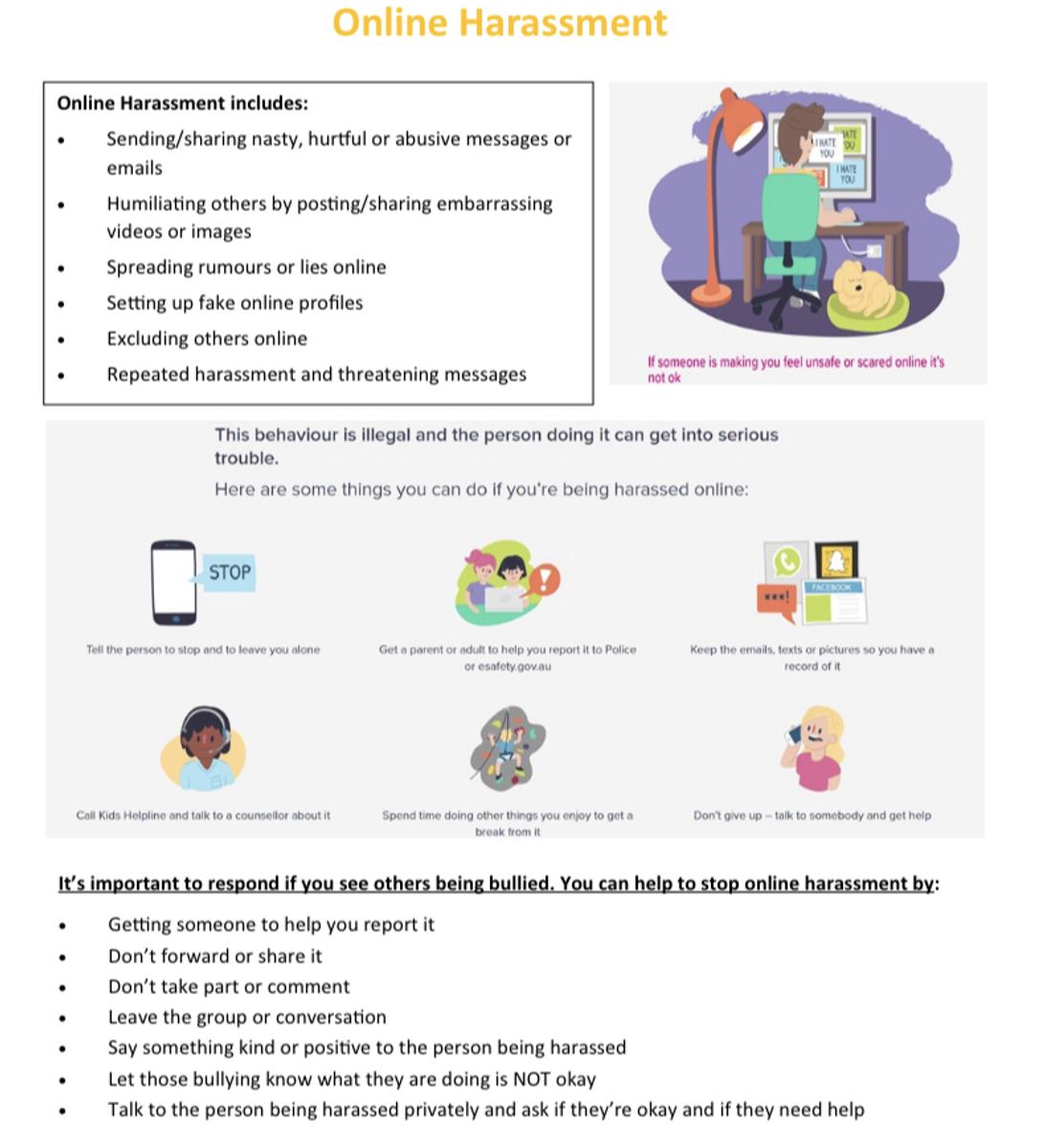Wellbeing
Student voice, agency and leadership

Wellbeing
Student voice, agency and leadership
With access to the internet and digital devices more prevalent than ever in our society; and indeed even more so during the current pandemic enforced restrictions, I would encourage you to share the below guide with your children. A simple conversation starter such as this can be really insightful for us as parents and children alike to better understand our own actions and the actions of those around us. Greater understanding within a society undoubtedly brings greater individual responsibility, acceptance and kindness towards both ourselves and others.


The reality of an online existence
With the prevalence of social media and digital forums, comments, photos, posts, and content shared by individuals can often be viewed by strangers as well as acquaintances. The content an individual shares online – both their personal content as well as any negative, mean, or hurtful content – creates a kind of permanent public record of their views, activities, and behaviour. This public record can be thought of as an online reputation, which may be accessible to schools, employers, colleges, clubs, and others who may be researching an individual now or in the future. Cyberbullying can harm the online reputations of everyone involved – not just the person being bullied, but those doing the bullying or participating in it. Cyberbullying has unique concerns in that it can be:
Persistent – Digital devices offer an ability to immediately and continuously communicate 24 hours a day, so it can be difficult for children experiencing cyberbullying to find relief.
Permanent – Most information communicated electronically is permanent and public, if not reported and removed. A negative online reputation, including for those who bully, can impact college admissions, employment, and other areas of life.
Hard to Notice – Because teachers and parents may not overhear or see cyberbullying taking place, it is harder to recognize.
This information is not shared lightly- it is not done to shock or scare but merely to inform and educate. When learning remotely students have found themselves in the grey area of using their devices in a school based capacity but in the home setting- the ambiguity of working from home is hard enough in an adult mind so for a child these many and varied crossovers can be truly confusing.
If you think back to your own childhood it was, as is oft quoted, a ‘simpler time’. Children today have a myriad of opportunities quite literally at their fingertips. Becoming compassionate, mature digital citizens takes time, energy and understanding from all of us, I hope these ideas help in generating thoughts, words and deeds that help promote safe and appropriate online behaviours.
Compiled by Nick King
Learning Specialist- Student Voice, Agency and Wellbeing